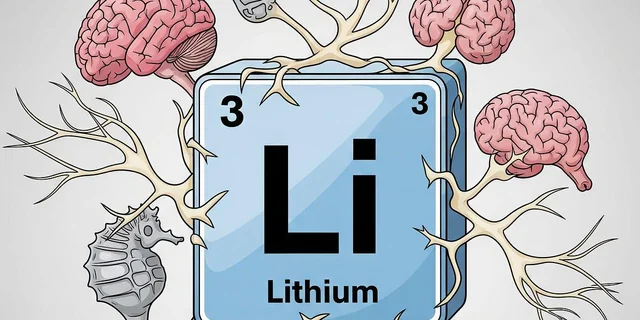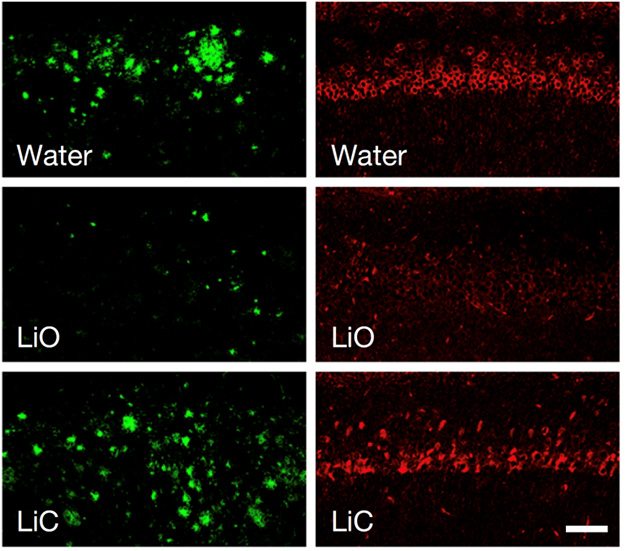
Lithium’s impact on cognition has garnered a lot of attention in recent weeks. An article published in Nature, suggests that lithium deficiency could be a factor in the pathogenesis of Alzheimer’s Disease (AD). Specifically, a lithium salt, known as Lithium Orotate (LiO), was shown to prevent pathological changes and memory loss in wild elderly and transgenic AD mice.
The body of research behind lithium is extensive, from modern energy storage to modern medicine. With major focuses on Lithium-ion batteries and mood stabilization for treating bipolar disease. Lithium is the lightest metal with the highest electrochemical potential on the periodic table, meaning it has the incredible ability to store the most amount of energy relevant to its weight. It is theorized that our brains have used lithium’s electrochemical potential long before the advent of the Lithium-ion battery.
This recent study using LiO in mouse models generates much hope in the fight against AD. Three types of mice, when fed a lithium-deficient diet, showed increased signs and precursors of AD. Specifically, they found that lithium-deficient, elderly wild-type mice were found to have elevated levels of amyloid-beta-42, a precursor of AD, as compared to the control group. This, along with other findings noted in the journal article, prompt many more questions around the idea of Lithium being an important element in our brain chemistry.
The figure below depicts another phenomenon:

The green represents amyloid plaque, and the red represents phospho-tau in the hippocampal regions of transgenic mice with AD mutations. These mutations allow the mice to present with plaque and tangle buildup, as in humans. This figure shows that LiO leads to a decrease in amyloid plaque and phospho-tau buildup compared to water and Lithium Carbonate (LiC).
The article presents many fascinating findings and urges more studies to be performed to further explore the potential benefits of Lithium. It is still unclear whether these findings in mice will present similar findings in human subjects, but there is a lot of hope around the topic. The dose of LiO the mice got was 1000 times lower than the dose of LiC that is often given to humans for bipolar disorder (1.2 g/day); that would suggest the equivalent human dose of LiO would be 150 mg/day.
Sources:
Aron, L., Ngian, Z. K., Qiu, C., Choi, J., et al. (2025). Lithium deficiency and the onset of Alzheimer’s disease. Nature, 10.1038/s41586-025-09335-x. Advance online publication.
Could Lithium Deficiency Be Powering Alzheimer’s? ALZFORUM. (2025, August 13) https://www.alzforum.org/news/conference-coverage/could-lithium-deficiency-be-powering-alzheimers
